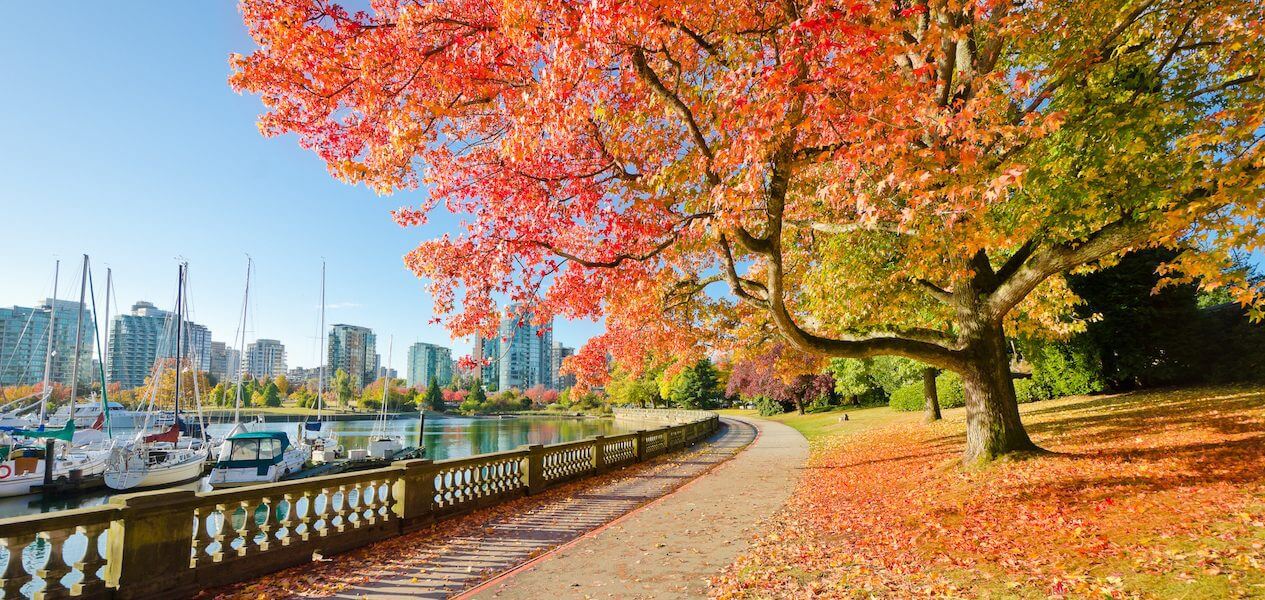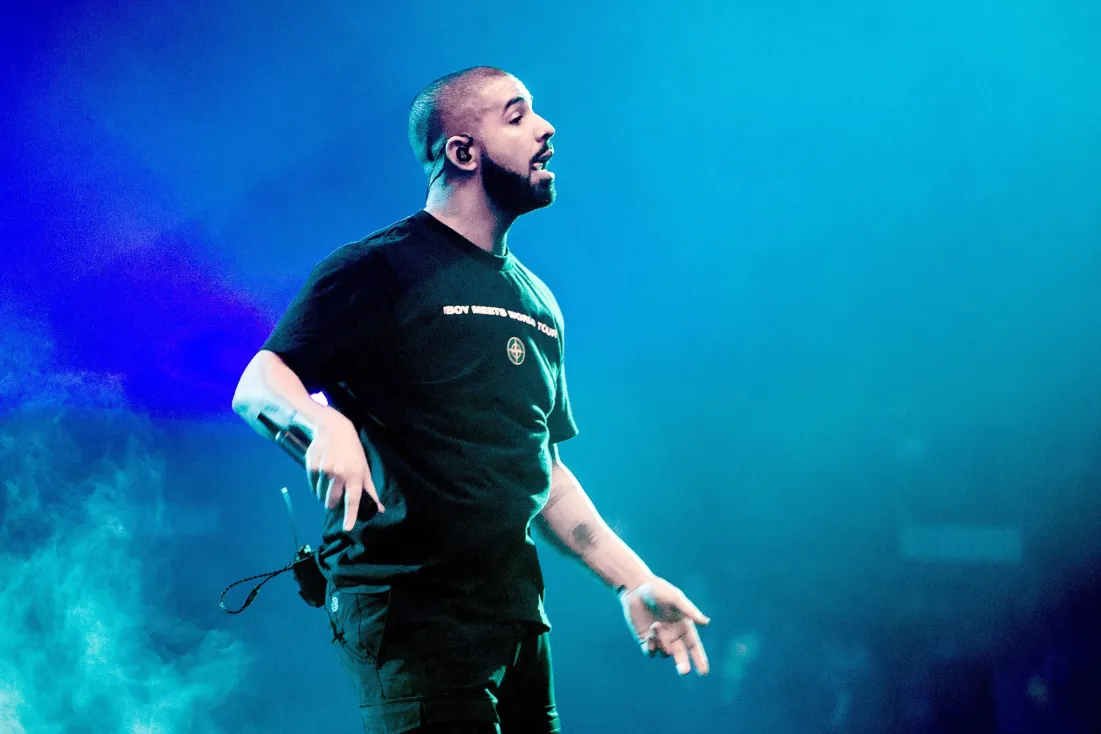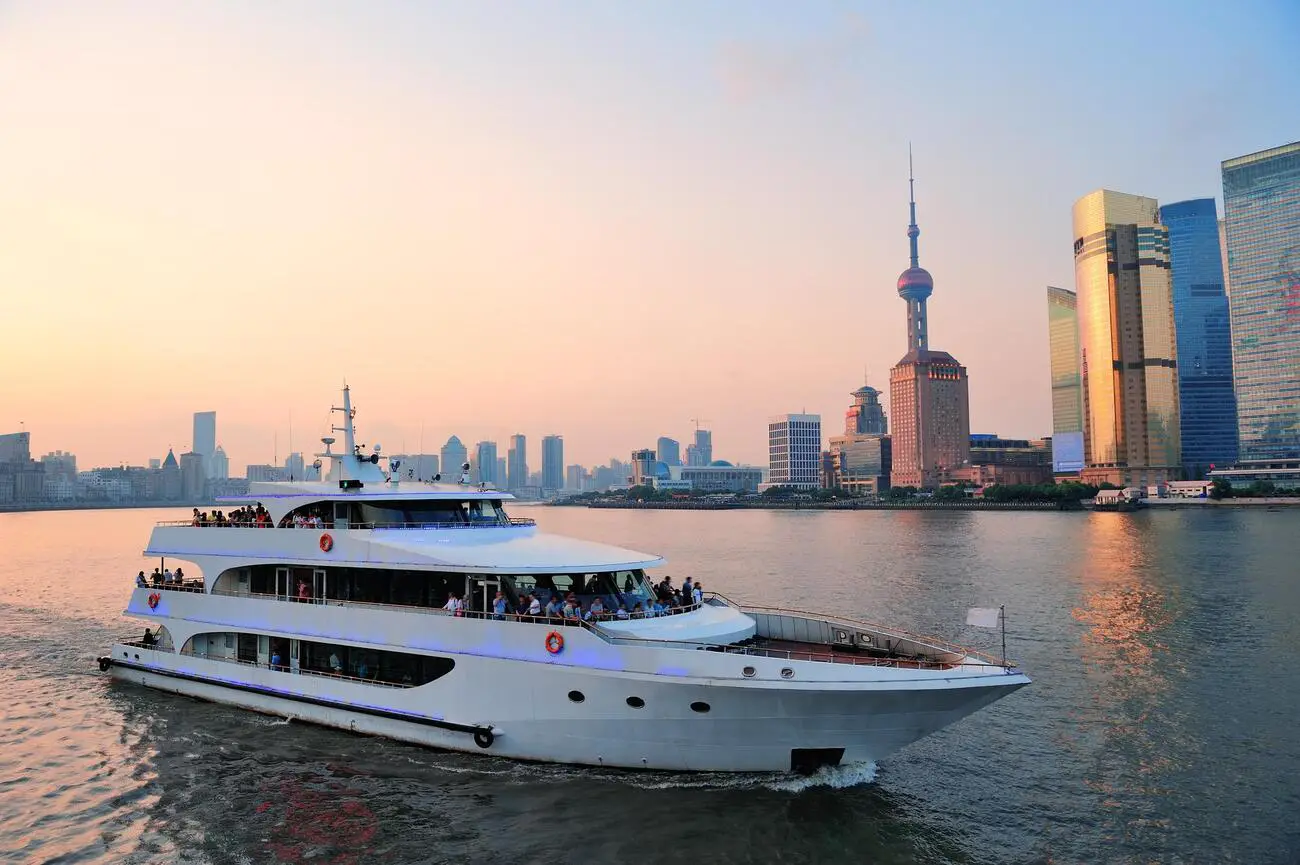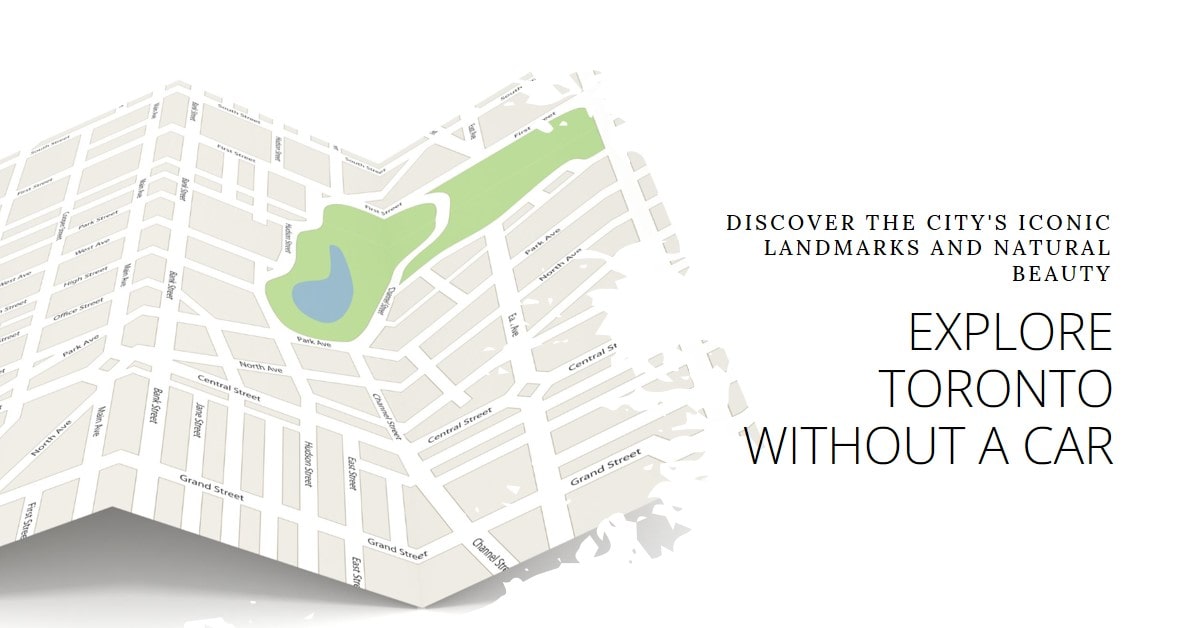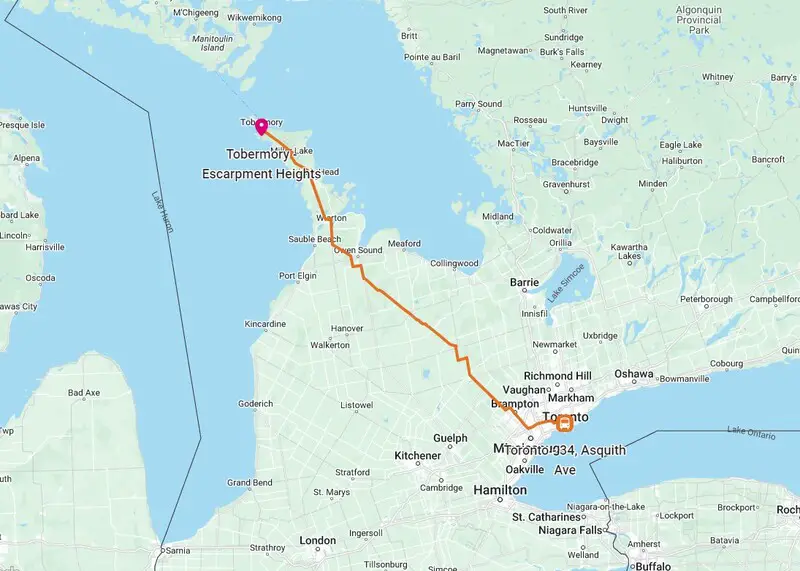Determining the best time to visit Vancouver depends on your preferences and what you hope to experience during your trip. Vancouver, located in British Columbia, Canada, offers a diverse range of attractions and activities throughout the year.
Summer is often considered the peak tourist season in Vancouver, as it boasts pleasant weather with average temperatures ranging from 20-25°C (68-77°F). This is an ideal time for outdoor activities such as hiking, biking, and exploring Stanley Park. Additionally, summer brings various festivals and events to the city.
Spring and fall are transitional seasons in Vancouver. Springtime (March to May) brings milder temperatures and blooming cherry blossoms, creating a picturesque atmosphere. Fall (September to November) offers mild weather with colorful foliage, making it a great time for scenic walks through parks or visiting nearby wineries.
The Best Times to Visit Vancouver: A Comprehensive Guide to Planning Your Trip
Springtime Splendor: Exploring Vancouver in the Months of March to May
Springtime in Vancouver is a magical season that bursts with vibrant colours and endless opportunities for outdoor adventures. As the cherry blossoms blanket the city in a delicate pink hue, it’s hard not to feel a sense of joy and wonder. From exploring the enchanting hiking trails to immersing yourself in the beauty of Stanley Park, there is no shortage of things to do and experience.
One of the highlights of spring in Vancouver is undoubtedly the cherry blossoms. These delicate flowers transform the city into a dreamy paradise, creating picture-perfect moments at every turn. Whether you’re strolling through the streets or visiting one of the many parks, you’ll be greeted by these stunning blooms that symbolize renewal and new beginnings.
If you’re an outdoor enthusiast, Vancouver’s hiking trails offer an exhilarating escape into nature’s embrace. With breathtaking scenery and varying difficulty levels, there’s something for everyone. Lace up your hiking boots and embark on an adventure through lush forests, cascading waterfalls, and majestic mountains – all while breathing in the crisp spring air.
And let’s not forget about Stanley Park – a true gem nestled within this beautiful city. This urban oasis boasts an array of activities that will leave you feeling invigorated and inspired. Take a leisurely bike ride along the seawall as you soak up stunning views of English Bay or explore its vast green spaces on foot. With blooming flowers everywhere you look, Stanley Park becomes even more captivating during springtime.
So why not embrace all that Vancouver has to offer during this delightful season? Immerse yourself in nature’s splendour amidst cherry blossom-lined streets, conquer challenging hiking trails with awe-inspiring views, and find serenity within Stanley Park’s lush greenery. Springtime in Vancouver is truly a joyful experience waiting to be explored!
Sunshine and Festivities: Summer Delights in Vancouver from June to August
Ah, Vancouver in the summer! It’s an absolute delight with its picturesque beaches and stunning waterfronts. The city comes alive with a vibrant energy as it hosts many outdoor festivals and events that cater to every interest and taste.
One can’t help but feel the infectious joy in the air as people gather to celebrate arts, music, food, and culture. And let’s not forget about the iconic Granville Island Market!
This bustling hub of culinary wonders is a true paradise for food enthusiasts, offering an array of fresh produce, local delicacies, and artisanal crafts. Vancouver truly knows how to make summertime unforgettable – it’s like stepping into a dreamland of happiness!
Fall Foliage and Mild Weather: September to November in Vancouver
Oh, how delightful it is to experience the vibrant and enchanting city of Vancouver during the splendid season of fall! As the leaves begin to change their hues, the city is adorned with a breathtaking display of autumn colours that will surely ignite joy in your heart.
Not only are you treated to this visual feast, but you can also revel in the mild temperatures that make outdoor exploration an absolute delight. Picture yourself strolling through the captivating streets, surrounded by nature’s majestic palette of reds, oranges, and yellows.
It’s like stepping into a living painting! And let’s not forget one of Vancouver’s crown jewels – Capilano Suspension Bridge Park! This magnificent park offers an extraordinary experience as you traverse its iconic suspension bridge amidst nature’s marvellous spectacle.
The combination of autumn foliage and thrilling heights creates an exhilarating sensation that is sure to leave you with memories that will warm your soul. So, my dear friend, seize this opportunity to immerse yourself in Vancouver’s fall wonders
. Let the crisp air fill your lungs as you embark on unforgettable adventures amidst nature’s fiery masterpiece at Capilano Suspension Bridge Park. It’s truly a season to be savoured!
Winter Wonderland: December to February Activities in Vancouver
Oh, how delightful it is to experience the wonders of Vancouver in winter! Picture yourself gracefully gliding down the snow-covered slopes of Grouse Mountain or Cypress Mountain, feeling the crisp winter air against your cheeks as you indulge in the exhilarating thrill of skiing or snowboarding.
And let’s not forget about the enchanting Christmas markets that fill the streets, offering a magical atmosphere and a plethora of festive treats and treasures. The twinkling lights at Robson Square create a truly mesmerizing ambiance, illuminating everything with a warm and joyful glow.
Vancouver truly comes alive during this season, providing unforgettable moments filled with laughter, adventure, and pure winter wonderland bliss.
Best time to visit Vancouver according to months
1. January – March:
– Winter in Vancouver means cooler temperatures and occasional rainfall.
– Ski enthusiasts can take advantage of nearby ski resorts like Whistler.
– The city also hosts various winter festivals and events.
2. April – June:
– Spring brings milder temperatures and blooming cherry blossoms.
– It’s a great time for outdoor activities like hiking, biking, or exploring Stanley Park.
– June marks the start of the festival season with events like Vancouver Craft Beer Week.
3. July – August:
– Summer is the peak tourist season with warm temperatures and longer daylight hours.
– Enjoy outdoor concerts, and beach days at English Bay, or visit popular attractions like Granville Island.
– The Celebration of Light fireworks festival takes place in late July/early August.
4. September – October:
– Fall offers cooler temperatures with beautiful foliage colours in parks and gardens.
– It’s an ideal time for scenic drives, visiting wineries, or exploring local farmers’ markets.
– The Vancouver International Film Festival takes place in September.
5. November- December:
– Winter starts setting in with shorter days and occasional rain showers.
Climate in Vancouver
Vancouver is known for its mild and temperate climate, thanks to its coastal location. The city experiences four distinct seasons, each with its own charm and appeal.
In the summer months, Vancouver shines with warm temperatures averaging around 20-25 degrees Celsius (68-77 degrees Fahrenheit). It’s the perfect time to explore the city’s stunning parks, take a stroll along the seawall, or even dip your toes in the Pacific Ocean.
As autumn arrives, Vancouver transforms into a picturesque landscape of vibrant colours. Temperatures start to cool down slightly, ranging from 10-15 degrees Celsius (50-59 degrees Fahrenheit). Don’t forget your cozy sweater as you enjoy walks through Stanley Park or indulge in some pumpkin-spiced treats.
Winter in Vancouver is relatively mild compared to other parts of Canada. Temperatures hover around 5-10 degrees Celsius (41-50 degrees Fahrenheit), with occasional snowfall that adds a touch of magic to the city. You can hit the slopes at nearby ski resorts or simply cozy up by a fireplace with a hot cup of cocoa.
Spring brings renewal and rejuvenation to Vancouver as flowers bloom and temperatures rise again. Expect pleasant days around 10-15 degrees Celsius (50-59 degrees Fahrenheit), perfect for exploring gardens like Queen Elizabeth Park or enjoying outdoor activities along English Bay.
No matter which season you find yourself in Vancouver, you’ll be greeted by its unique climate that offers something for everyone. So pack accordingly and get ready to embrace all that this vibrant city has to offer!
Cheapest Time to Visit Vancouver
When it comes to planning your trip, timing is key. Vancouver offers different seasons throughout the year, each with its own unique charm and price tag. If you’re looking for budget-friendly options, consider visiting during the shoulder seasons – spring and fall. During these times, you can enjoy pleasant weather while avoiding peak tourist crowds and high prices.
Springtime in Vancouver, from March to May, offers mild temperatures and blooming cherry blossoms. It’s a great time to explore outdoor attractions such as Stanley Park or take a stroll along English Bay without breaking a sweat or your budget.
Similarly, fall in Vancouver (September to November) brings colourful foliage and comfortable temperatures. You can enjoy scenic hikes in nearby mountains or visit popular attractions like Granville Island without competing with summer vacationers.
Keep in mind that weekdays generally offer better deals than weekends for accommodations and activities. Also, be sure to check for any local events or festivals that might affect prices during your desired travel dates.
So there you have it – plan your trip wisely by visiting Vancouver during its cheapest times of the year. You’ll get to experience all that this stunning city has to offer while keeping your wallet happy!
Busiest Time to Visit Vancouver
Determining the busiest time to visit Vancouver can help travellers plan their trips more effectively and avoid large crowds. Several factors contribute to the city’s busiest periods, including weather, events, and peak tourist seasons.
One of the busiest times to visit Vancouver is during the summer months, particularly July and August. The pleasant weather, with average temperatures ranging from 20-25 degrees Celsius (68-77 degrees Fahrenheit), attracts a significant influx of tourists. This is also when schools are on summer break, making it a popular time for families to travel.
Another busy period in Vancouver is during major events and festivals. The city hosts numerous cultural celebrations and international events throughout the year that draw large crowds. For example, the Vancouver International Film Festival in September, the Celebration of Light fireworks competition in July/August, and the Pride Parade in August are just a few examples of events that attract visitors from all over.
It’s important to note that weekends tend to be busier than weekdays in popular tourist areas such as Stanley Park or Granville Island. Additionally, if you’re planning to visit during holidays like Canada Day (July 1st) or Thanksgiving (the second Monday in October), expect increased crowds and limited availability for accommodations.
To avoid the busiest times in Vancouver, consider visiting during shoulder seasons like spring (April-May) or fall (September-October). During these periods, you can still enjoy pleasant weather while experiencing fewer crowds compared to peak summer months.
Ultimately, determining the busiest time to visit Vancouver depends on your preferences and tolerance for crowds. By considering factors such as weather patterns, major events/festivals, and school holidays, you can make an informed decision that suits your travel needs.
Which month is ideal for travel to Vancouver?
The summer months of June, July, and August are popular times to visit Vancouver due to the warm temperatures and longer daylight hours. This is an excellent time for outdoor activities such as hiking, biking, and exploring Stanley Park. Moreover, summer brings vibrant festivals like the Celebration of Light fireworks competition and the Vancouver International Jazz Festival.
If you prefer milder temperatures and fewer crowds, spring (March to May) and fall (September to November) can be great options. During these months, you can enjoy beautiful cherry blossoms in spring or witness stunning fall foliage in autumn. Additionally, hotel rates may be more affordable during these shoulder seasons.
How long should your trip to Vancouver last?
Determining the ideal duration for your trip to Vancouver depends on various factors and personal preferences. However, there are a few key considerations that can help you make an informed decision.
Firstly, the purpose of your trip plays a crucial role in determining its length. If you plan to explore the highlights of Vancouver’s city life, such as visiting popular attractions like Stanley Park or Granville Island, a shorter stay of 3-4 days might be sufficient. On the other hand, if you wish to venture into the surrounding areas and experience outdoor activities like hiking in Whistler or exploring Vancouver Island, extending your stay to a week or more would be recommended.
Secondly, take into account your interests and preferences. If you are passionate about nature and want ample time for outdoor adventures, allocating more days would allow for flexibility and ensure you don’t feel rushed. Conversely, if you have limited time or prefer a condensed city-focused itinerary, a shorter trip may suit your needs.
Additionally, considering the season can impact the duration of your visit. Vancouver experiences mild winters and pleasant summers. If you plan to engage in winter sports or attend seasonal events like skiing in nearby mountains or participating in winter festivals, scheduling a longer stay during that time would be beneficial.
- Yonge-Dundas Square in Toronto is Now Called “Sankofa Square” - December 17, 2023
- Best Western Brooks’ SureStay Plus debuts in Alberta - December 16, 2023
- Air Canada Arrives in Tulum, Mexico as the First Canadian Airline - December 16, 2023
